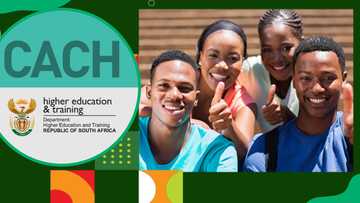How students could access financial assistance for higher education in South Africa
Education is expensive in South Africa. Many students miss out on pursuing higher education due to financial constraints. There are several options for financial assistance for higher education. The National Student Financial Aid Scheme (NSFAS) is the main aid program. Here are more options to explore.
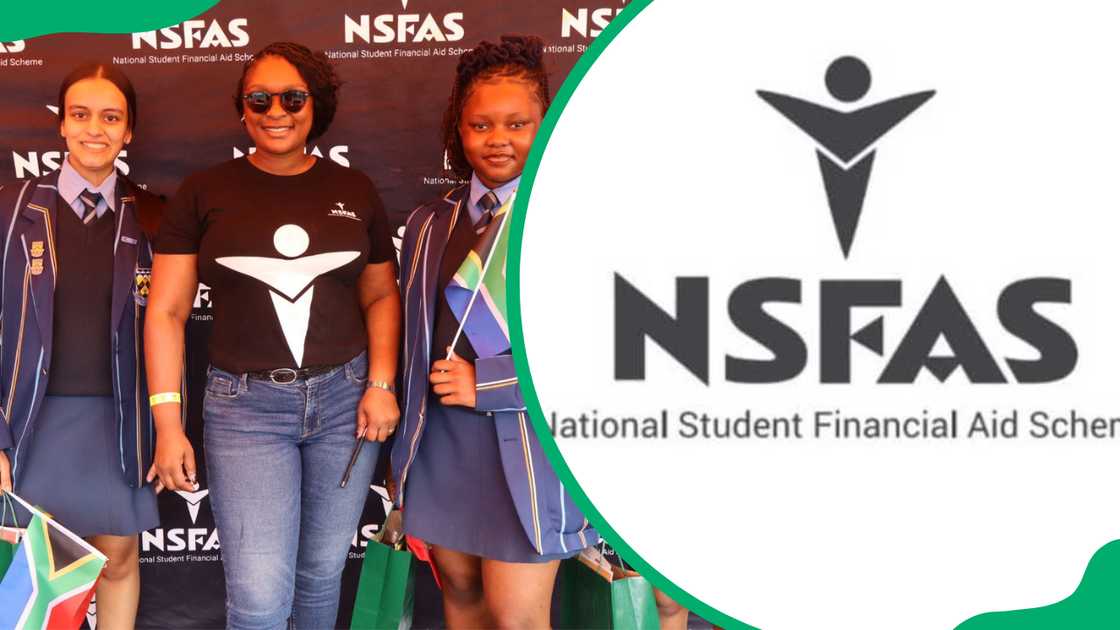
Source: Twitter
TABLE OF CONTENTS
- Key takeaways
- Financial assistance for higher education in South Africa
- What needs are meant to be covered by the financial aid?
- What are four ways students can access financial aid?
- Can international students get bursaries in South Africa?
- Which scheme offers the highest financial assistance to students?
- How do I apply for higher education funding?
Key takeaways
- Many students in South Africa rely on financial assistance for higher education to cover tuition, living costs, and study materials.
- Students can access funding through scholarships, bursaries, government schemes, and work-study programs.
- South African student financial assistance for higher education includes NSFAS, ISFAP and more.
Financial assistance for higher education in South Africa
The three major types of financial aid to students are grants, loans, and work-study. Grants entail free money; loans must be repaid with interest, while work-study funding is earned by working.
There are several funding options available for college students to finance their further studies in South Africa, as discussed below.
1. The National Student Financial Aid Scheme (NSFAS)
The NSFAS, under the Department of Higher Education and Learning, supports learners from financially disadvantaged backgrounds. It helps them get funding for their public university or TVET education. If your family’s combined annual income is less than R350,000, you are eligible to apply for this financial support.
Applications are open from September to November every year. NSFAS funds college students from all 26 public universities in South Africa.
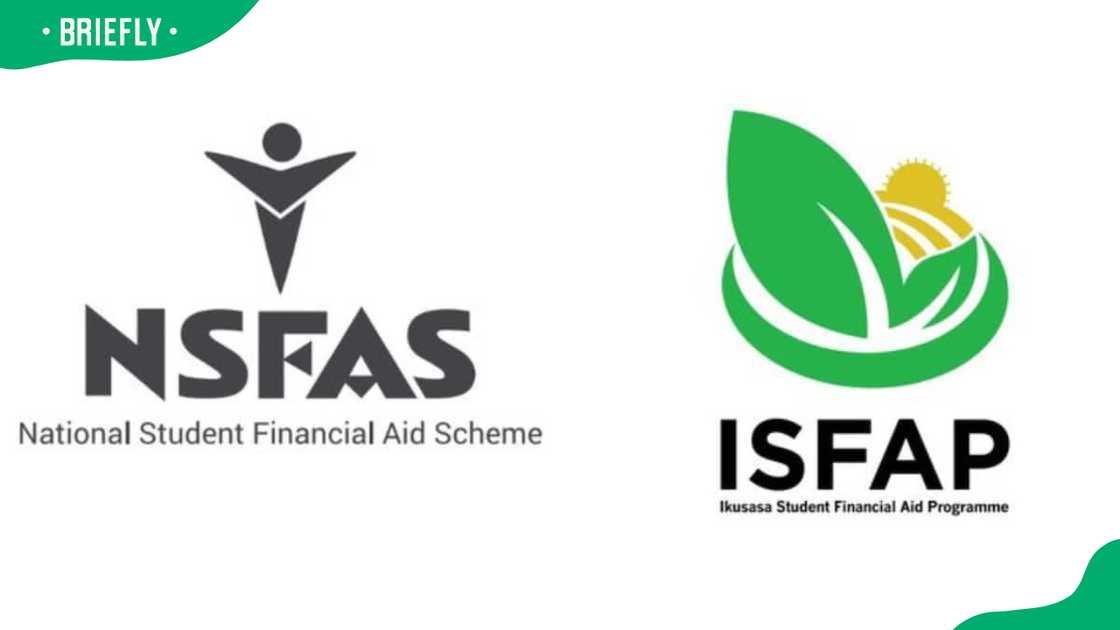
Source: Twitter
2. Ikusasa Student Financial Aid Programme (ISFAP)
The ISFAP was registered in 2018 as a Public Benefit Organization. The former Minister of Higher Education, Dr. Blade Nzimande, appointed a task force to explore funding options for needy students. ISFAP funds the total cost of studies for learners from the missing middle class. These are households with annual incomes between R350,000 and R600,000.
ISFAP was created to complement NSFAS, which funds learners from the poor class with household incomes between R0 and R350,000. It also plays an important role among financial sponsors for students. ISFAP supports students who are pursuing degree courses with high demand or scarce skills.
The Ikusasa programme currently funds students from 11 South African Universities, including:
- Central University of Technology
- Nelson Mandela University
- University of Venda
- Stellenbosch University
- University of the Witwatersrand
- University of Pretoria
- Walter Sisulu University
- University of Cape Town
- Tshwane University of Technology
- University of KwaZulu-Natal
- University of Johannesburg
3. University financial aid and work/study programmes
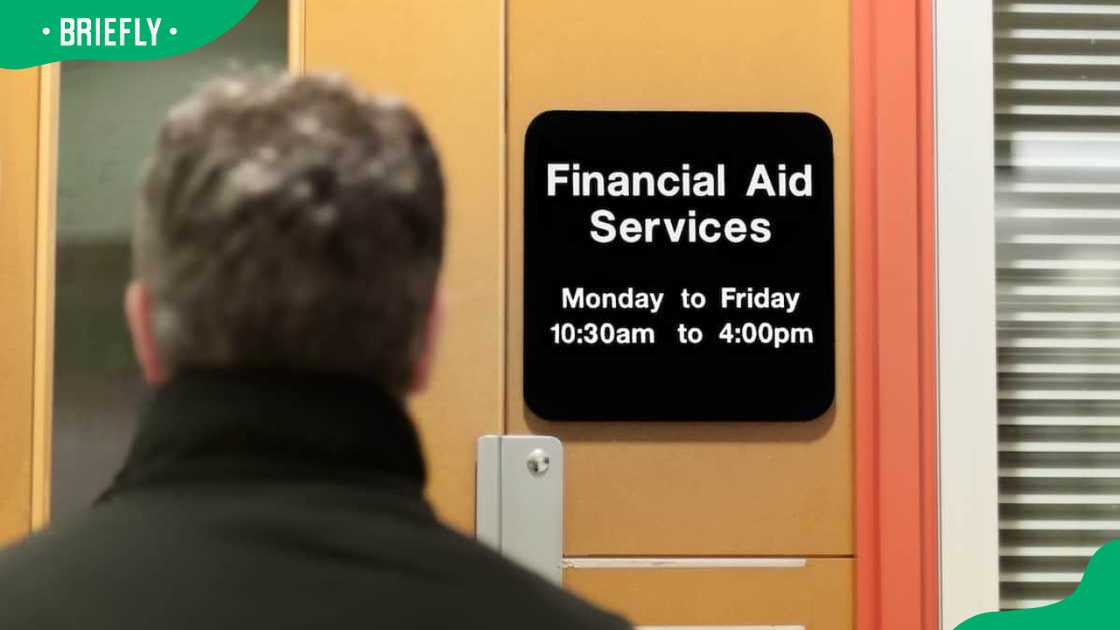
Source: Facebook
Most universities in South Africa offer loans and bursaries to needy learners through the Student Financial Aid office. They assess all applications before allocating funding. These options provide important funding for further education. Universities also offer work study programmes. Students can work part-time at the school and get paid.
4. External bursaries
External sponsors, including private and state-owned companies, NGOs, SETAs, and government departments, provide financial assistance to learners pursuing certain professional studies. When applying for external bursaries, you need to send your academic reference letter or testimonial and a motivational letter indicating why you need funding. The funder will then invite you for an interview.
Numerous organizations across South Africa offer bursaries, including;
- Genesis Educational Foundation Trust: Economic studies
- ExploreAI Academy: Data Engineering and Science studies
- Siemens: Engineering and technology studies
- The Steel and Engineering Industries Federation of Southern Africa (SIEFSA): Steel and engineering studies
- The Professional Provident Society (PPS): STEM studies
To find out about open bursaries, visit the Bursaries South Africa website.
5. Scholarships
Scholarships are another viable option for students to access financial assistance for higher education in South Africa. Scholarships are usually given to bright students with strong academic records. Well-wishers, companies, and schools offer these awards based on merit. They give learners money without conditions.
6. Student loans

Source: UGC
Various financial services providers, including banks and credit companies, offer student loans that should be paid back with interest. The lenders usually send the applicable school fees directly to the learner’s college account.
The student’s parents/guardian is required to pay the loan’s monthly interest, while the capital portion is repayable by the student when they get employed or by a debit order. Applicants also need to provide surety in case they are unable to repay the loan when due. Banks usually request the learner to get a credit life insurance cover for the loan taken.
Student loans are offered by the following South African financial services providers:
- First National Bank (FNB)
- Standard Bank
- Nedbank
- Absa
- Fundi
7. Crowdfunding for students
Needy learners who miss out on other study funding options can try crowdfunding platforms. BackaBuddy and Feenix crowdfunding platforms for students have helped several South Africans raise money to cover their tertiary education fees. You need to sign up on their platform, submit your story, set your funding target, and reach out to well-wishers for support.
What needs are meant to be covered by the financial aid?
Financial aid in South Africa is meant to cover tuition fees, textbooks, accommodation, transport, and sometimes living expenses. Some schemes also help with meals and study materials.
What are four ways students can access financial aid?
- Scholarships: Given to students with strong academic performance.
- Bursaries: Provided by companies, organizations, or schools, often linked to specific courses or skills.
- Government funding: Programs like NSFAS provide loans or grants to needy students.
- Work-study programmes: Students work part-time at their institution or partner organizations to earn money while studying.
Can international students get bursaries in South Africa?
Yes, some bursaries are open to international students. However, most government funding schemes, like NSFAS, are limited to South African citizens. International students should check eligibility before applying.
Which scheme offers the highest financial assistance to students?
The NSFAS scheme offers the most comprehensive financial assistance. It can cover full tuition, accommodation, and living costs for qualifying students. ISFAP also provides full funding for students from the missing middle class.
How do I apply for higher education funding?
Students can apply online through the funding organization’s website, like NSFAS or ISFAP. They must submit proof of income, academic records, and other required documents. Some universities also allow direct applications via their Student Financial Aid office.
No learner should miss studies because of a lack of school fees. The above options for financial assistance for higher education are in place to ensure you can continue your studies. Students are advised to apply for grants and scholarships before considering student loans, which must be repaid with interest.
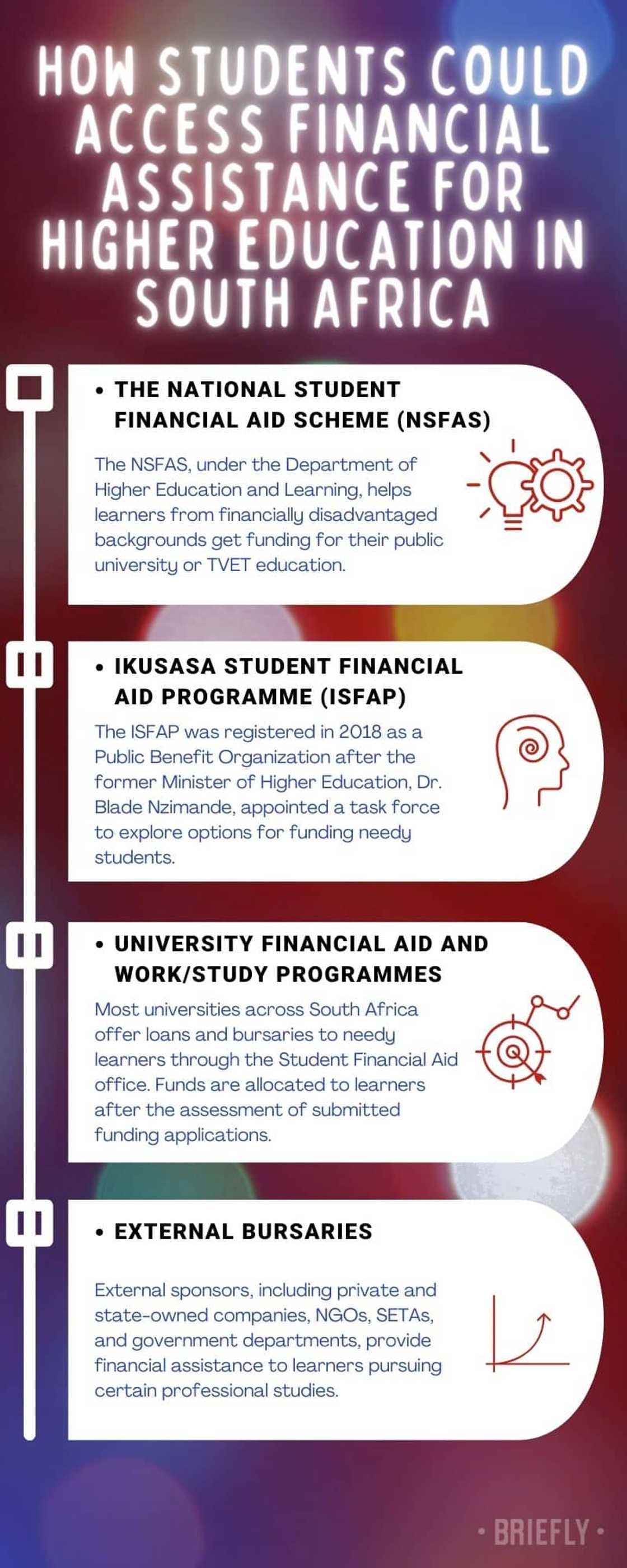
Source: Original
Briefly.co.za highlighted everything you need to know regarding the Fundi Student Loan. Fundi is an education financing and management specialist in South Africa.
The lending institution offers students unsecured loans at an 11.6% interest rate. You will have up to four years to make repayments, which are often collected from your paycheck or made by debit order.
Source: Briefly News

Alice Wabwile (Lifestyle writer) Alice Wabwile is a multifaceted content creator and Project Assistant at AfDAN, boasting over four years of experience. Holding a BCom degree from the University of Nairobi School of Business, she has cultivated a dynamic skill set through roles such as her tenure at Strathmore University's Data Science Department, where she contributed significantly to research. Recognized for her exceptional talent, she clinched the Writer of the Year Award. Beyond her professional endeavours, Alice is an engaged member of the Rotaract Club of Kabete. For inquiries, reach out to her at alicenjoro01@gmail.com

Sharon Boit (Lifestyle writer) Sharon J. Boit is a creative writer and researcher with over 10 years of experience. She began her career as a project manager and researcher at the Center for Urban Research and Innovations, University of Nairobi. Sharon has written articles and blog posts for MSN News, Ihamba Adventures, and Industry Biz. She joined Briefly.co.za as a Lifestyle Writer in October 2024, covering entertainment, sports, education, and finance. You can reach Sharon J. Boit by email at boit@gmail.com.


